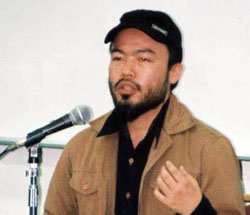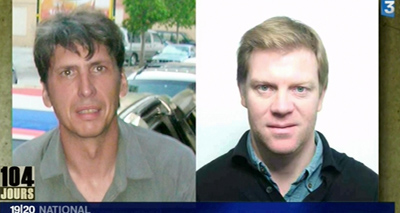
There has been a virtual news blackout on freelance Japanese journalist Kosuke Tsuneoka, who was reported missing a month ago and is believed to be held captive. He was last heard from in a Twitter message on April 1, when he said he had gone into a Taliban-controlled area in the country’s north early the day before. Japanese Chief Cabinet Secretary Hirofumi Hirano told journalists at the time that he was aware of media reports about the kidnapping, according to Tokyo-based agency Kyodo News and international news reports. He declined to comment in detail, saying, “generally speaking, this kind of abduction involves personal information,” according to Kyodo News. A relative told the agency that Japan’s Foreign Ministry had asked the family not to talk to the media.
Japanese colleagues have been tracking media in Japan for us, and there has been no significant mention of his case since a spate of coverage on April 5. Several news reports at that time cited an unnamed Afghan reporter as saying that Tsuneoka was being held in a jail in Baghlan province. The Afghan reporter said the information came from Baghlan residents, including witnesses, according to the reports. Neither the Afghan or Japanese governments have made any more announcements about Tsuneoka; the Afghan colleagues I’ve checked with say they’ve heard no new information.
The other case has dragged on longer. Thursday marked the fourth month that two French television journalists, Hervé Ghesquière and Stéphane Taponier, translator Mohammed Reza, and the group’s driver were taken in Kapisa province, northeast of Kabul. After the April 12 release of a video of the two French journalists, the France 3 Web site said, the families of the hostages gave permission to release their names and photographs. In a statement released on Thursday, France 3 said it will work with officials in Afghanistan, “while observing the necessary discretion” to ensure their release.
In earlier reporting, I’ve noted that journalist abductions had been growing in number in Afghanistan and that foreign journalists and their local assistants had been hard hit. We’ve documented at least 16 journalist abductions in Afghanistan since 2007. As in Pakistan, the kidnapping of journalists is an indicator of how little security there is.
There is always a lot of discussion when it comes to handling public information on abductions. I wrote about the problem last July, when I was in Kabul, and it’s worth repeating some advice–a reality check, really–that I got from a CPJ International Press Freedom Awardee Danish Karokhel, director of Pajhwok Afghan News. Here’s part of what I said at the time:
Deciding on whether or not to report on a kidnapping is the sort of decision Karokhel has to make several times a week: Disappearances of NGO officials, workers who sweep the countryside for undetonated mines, wealthy business people, and journalists make it seem like kidnapping is a growth industry in Afghanistan.
Karokhel said he has to sit on a lot of stories for fear of angering powerful figures and, thus, endangering his reporters. But then, he said, has to deal with complaints from local people who want their story told and want to know why it’s not being reported. “As a reporter in this country what are we supposed to cover? Every story has to anger someone; that’s what makes it news.”
